Read time: 5 minutes.
As we age, our nutritional needs change. A nutrient-rich diet is essential for healthy aging as it provides the body with the necessary nutrients to support optimal physical and mental health. A balanced diet should include a variety of nutrient-dense foods that are low in calories, saturated and trans fats, and added sugars. Eating a diet that is rich in fruits, vegetables, whole grains, lean protein, and healthy fats can help promote healthy aging. The best way to do this is by consuming whole foods that are as close to their natural source as possible.
Also Read: Top 5 Natural Grounding Foods
Protein is an important nutrient for aging athletes because it maintains muscle mass and strength, which can decrease with age. It is recommended that athletes over the age of 30 consume at least 0.8 to 1 gram of protein per kilogram of body weight per day.
Sources of protein include
1. Lean Meats
2. Poultry
3. Fish
4. Eggs
5. Beans
6. Nuts
Including high-quality protein with each meal can help ensure adequate intake throughout the day.
Calcium and vitamin D are also important nutrients. Adults over the age of 50 should consume at least 1200 milligrams of calcium and 600 international units of vitamin D per day.
Good sources of calcium include
1. Dairy Products
2. Leafy Green
3. Vegetables
4. Fortified Foods
Vitamin D can be obtained from
1. Sunlight
2. Fortified Foods
3. Supplements
It is important to speak with a healthcare provider before starting any new supplements to ensure proper dosing and safety.
Here are some additional ways that nutrition can help to delay aging in adult athletes.
Reduces inflammation.
Reducing inflammation is crucial for healthy aging, as chronic inflammation has been linked to many age-related diseases such as heart disease, diabetes, and certain cancers. The good news is that certain foods can help reduce inflammation and promote healthy aging.
These include
1. Fruits
2. Vegetables
3. Whole grains
4. Nuts
5. Fatty fish
These foods are rich in antioxidants and anti-inflammatory compounds, such as omega-3 fatty acids, that can help reduce inflammation and protect the body against disease.
Also Read: 7 Anti-Inflammatory Foods for Optimum Wellness
In contrast, certain foods can promote inflammation and should be limited in a healthy aging diet. These include processed and fried foods, sugar-sweetened beverages, and foods high in saturated and trans fats. Instead, opt for whole, unprocessed foods that are low in added sugars and saturated fats. Eating a variety of colorful fruits and vegetables, whole grains, lean protein, and healthy fats can help reduce inflammation and promote healthy aging. Additionally, staying hydrated by drinking plenty of water and limiting alcohol intake can also help reduce inflammation and promote overall health.
Helps maintain a healthy weight.
Maintaining a healthy weight is essential for healthy aging, as being overweight or obese can increase the risk of many age-related diseases, such as heart disease, diabetes, and certain cancers. A healthy weight can also help improve physical function, mobility, and quality of life as we age. Nutrition plays a critical role in maintaining a healthy weight. Eating a balanced diet that is low in calories and high in nutrient-dense foods, such as fruits, vegetables, whole grains, lean protein, and healthy fats, can help maintain a healthy weight.
Also Read: How exercise can help you stay young
One strategy for maintaining a healthy weight is to practice portion control. This involves monitoring the amount of food consumed at each meal and snack. Eating slowly and mindfully can help prevent overeating and promote feelings of fullness. Additionally, choosing foods that are high in fiber, such as fruits, vegetables, and whole grains, can help promote feelings of fullness and reduce overall calorie intake. Avoiding high-calorie and high-fat foods, such as fast food and processed snacks, can also help maintain a healthy weight. Drinking plenty of water and limiting sugar-sweetened beverages, such as soda and juice, can also help reduce overall calorie intake and promote healthy aging.
Provides essential nutrients.
Providing essential nutrients is important for healthy aging, as our bodies require different nutrients to maintain optimal health as we age. A balanced and varied diet that includes a range of nutrient-dense foods can help ensure that we are meeting our nutritional needs.
Essential nutrients for healthy aging include
1. Calcium
2. Vitamin D
3. Vitamin B12
4. Iron
Calcium and vitamin D are important for maintaining bone health and preventing osteoporosis, while vitamin B12 is needed for healthy brain function and red blood cell production. Iron is essential for the formation of red blood cells and the transport of oxygen throughout the body.
While we are on the subject of nutrients for your diet. You can check out my article on 4 High Protein Breakfast Recipes to fulfill your protein needs.
Including a variety of nutrient-dense foods in the diet can help ensure adequate intake of essential nutrients. Good sources of calcium include dairy products, leafy green vegetables, and fortified foods. Vitamin D can be obtained from sunlight, fortified foods, and supplements. Good sources of vitamin B12 include lean meat, poultry, fish, eggs, and fortified foods. Iron can be found in lean meat, poultry, fish, beans, and fortified cereals. Eating a variety of colorful fruits and vegetables can also help ensure an adequate intake of vitamins, minerals, and antioxidants that are essential for healthy aging. It is important to speak with a healthcare provider before starting any new supplements to ensure proper dosing and safety.
Also Read: Beginner’s Guide to Choosing Probiotics
Supports brain health.
Supporting brain health is important for healthy aging, as cognitive decline and neurodegenerative diseases such as Alzheimer’s and Parkinson’s become more common as we age. Good nutrition can play a crucial role in supporting brain health. A diet that is high in fruits, vegetables, whole grains, animal protein, and healthy fats can provide the necessary nutrients and antioxidants to support optimal brain function and prevent cognitive decline.
Also Read: 7 Natural Brain Boosting Foods and Supplements
Omega-3 fatty acids, found in fatty fish such as salmon and mackerel, are particularly important for brain health. Omega-3s help protect the brain against inflammation and oxidative stress and support the growth and development of brain cells. Other nutrients that are important for brain health include B vitamins, vitamin E, and folate. These can be found in a variety of foods such as animal foods, leafy green vegetables, nuts, seeds, and whole grains.
Reduces the risk of chronic diseases.
Reducing the risk of chronic diseases is essential for healthy aging, as chronic diseases such as heart disease, diabetes, and certain cancers become more common as we age. Good nutrition can play a crucial role in reducing the risk of chronic diseases. A diet that is high in whole, unprocessed foods and low in saturated and trans fats, added sugars, and salt can help promote optimal health and reduce the risk of chronic diseases.
Also Read: Eating for beautiful skin: how your diet can help you look younger
Foods that are particularly beneficial for reducing the risk of chronic diseases include fruits, vegetables, whole grains, animal protein, and healthy fats such as nuts and seeds. These foods are rich in antioxidants, fiber, vitamins, and minerals that can help protect against chronic diseases. Limiting processed foods and refined sugar can help reduce the risk of certain types of cancer and heart disease. Staying hydrated and limiting alcohol consumption can also help reduce the risk of chronic diseases.
In summary...
Good nutrition is essential for healthy aging. By focusing on a balanced diet that is high in nutrient-dense foods such as fruits, vegetables, whole grains, lean protein, and healthy fats, we can reduce the risk of chronic diseases, support brain health, maintain a healthy weight, and provide essential nutrients needed for optimal health as we age.
Practicing portion control, staying hydrated, limiting alcohol consumption, and avoiding processed and high-sugar foods can also help promote healthy aging. It is important to speak with a healthcare provider or registered dietitian to ensure that individual nutritional needs are being met and to create a personalized nutrition plan for healthy aging.
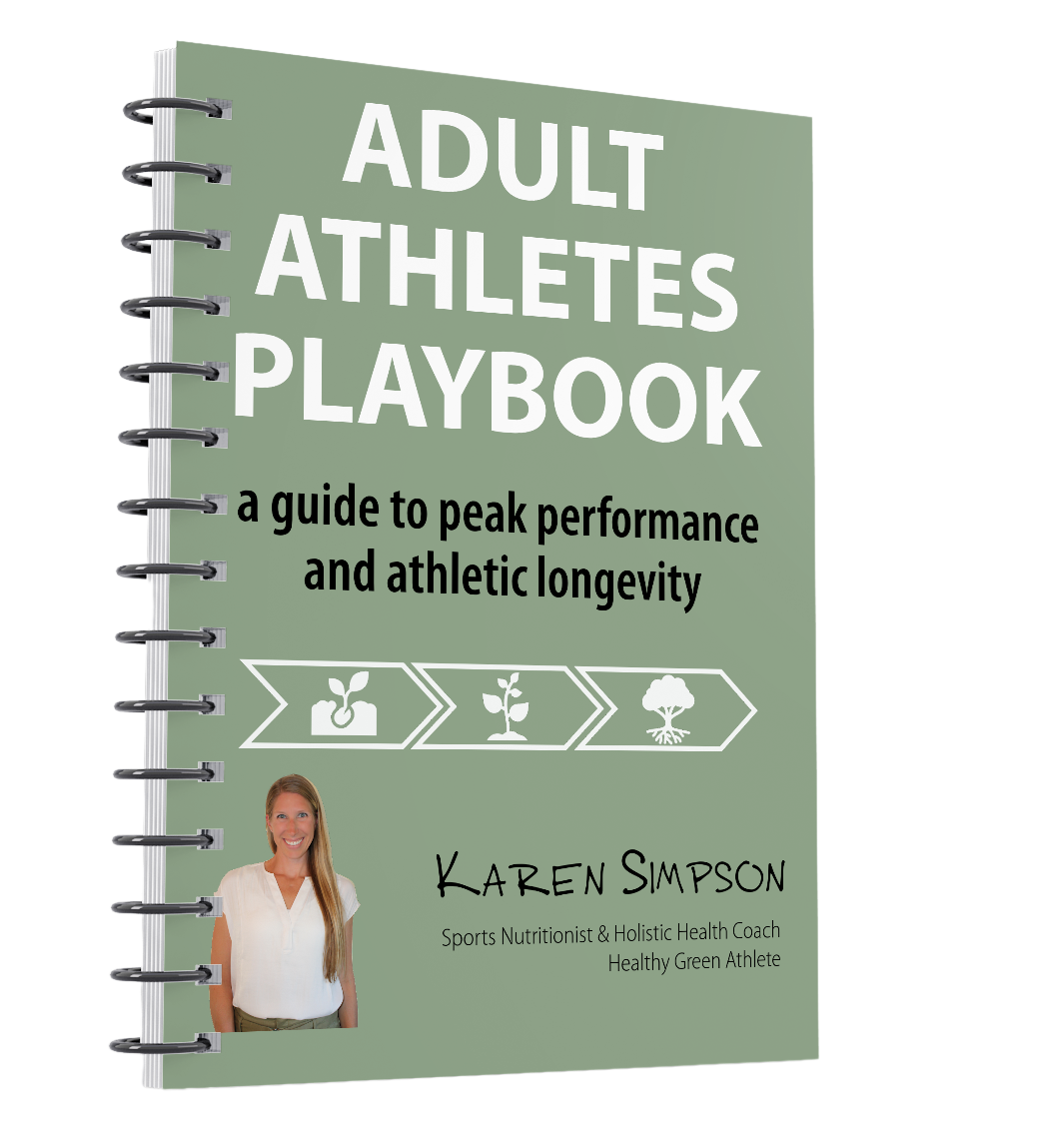
Adult Athletes Playbook
A Guide to Peak Performance and Athletic Longevity
This playbook will help you develop and implement a personalized game plan for improving athletic performance.
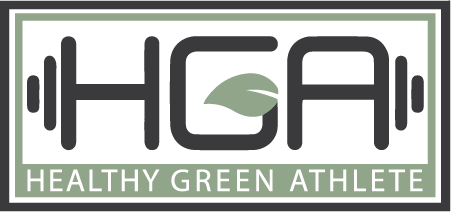

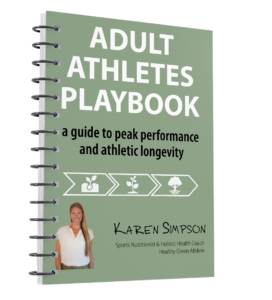



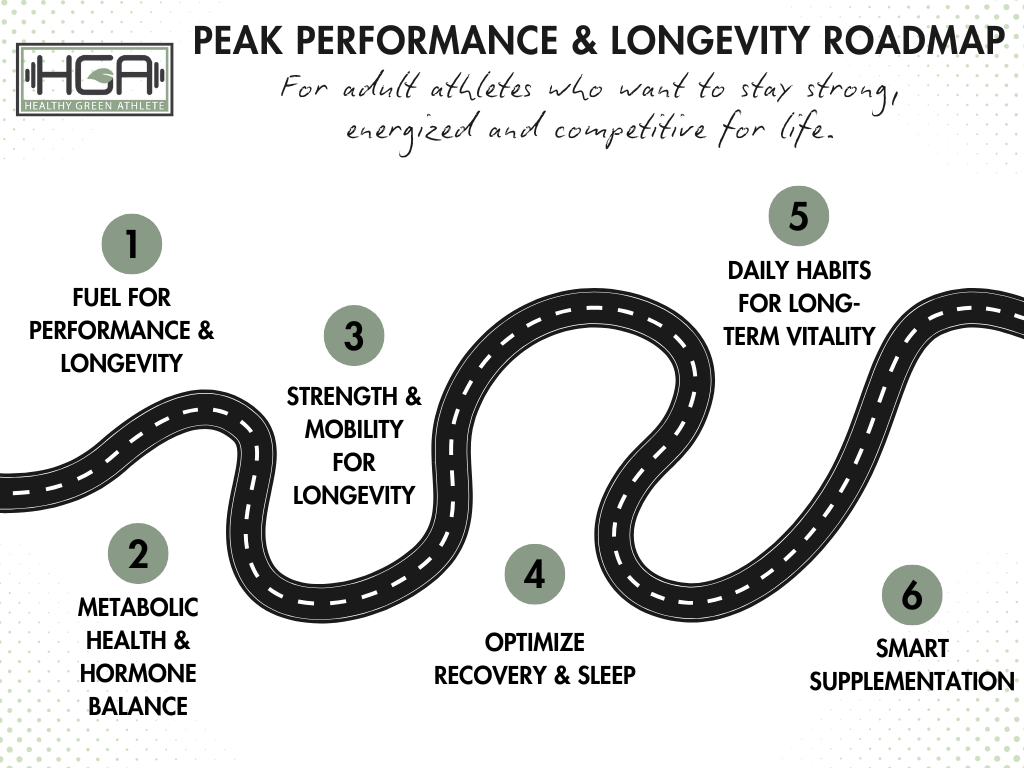

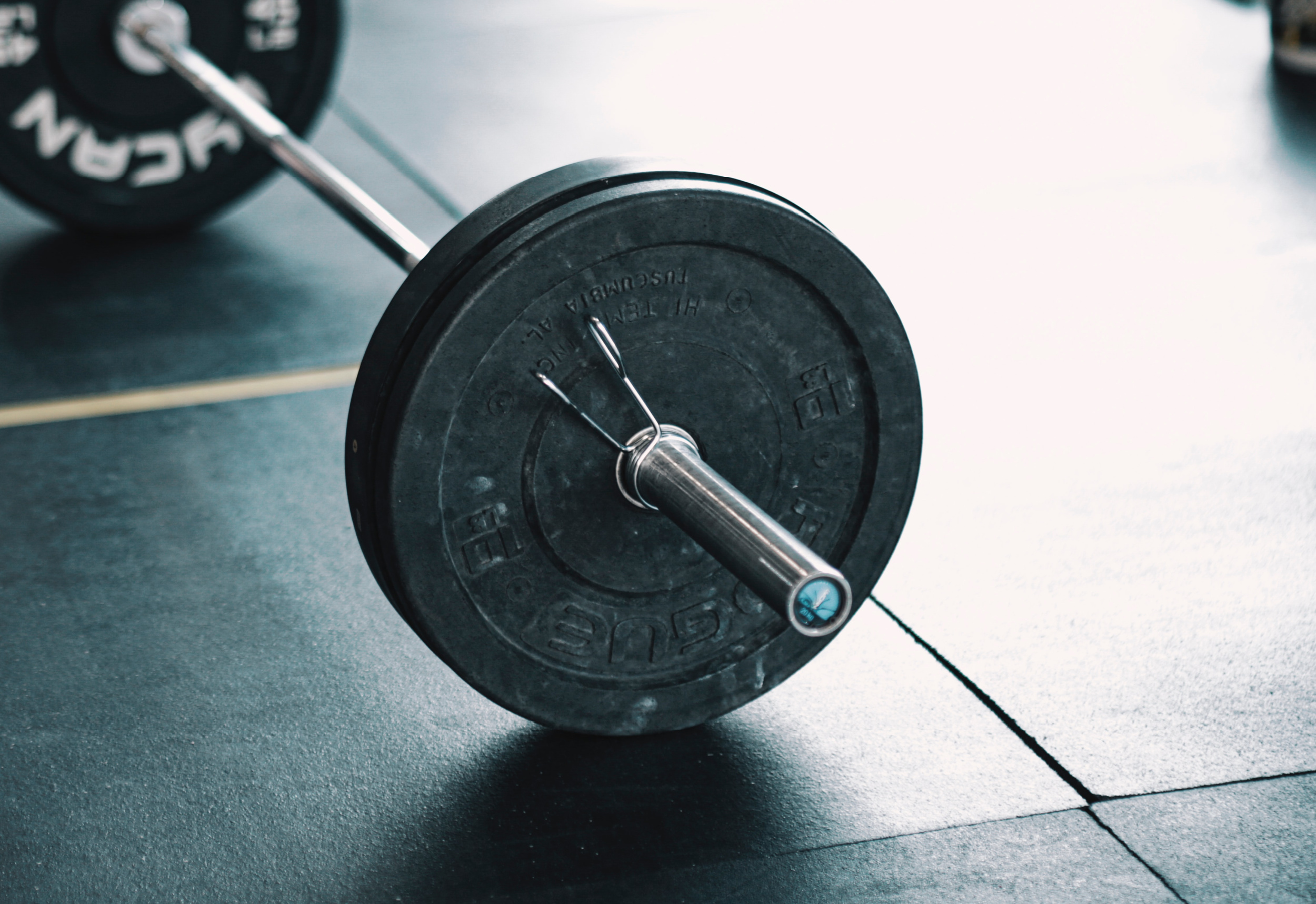

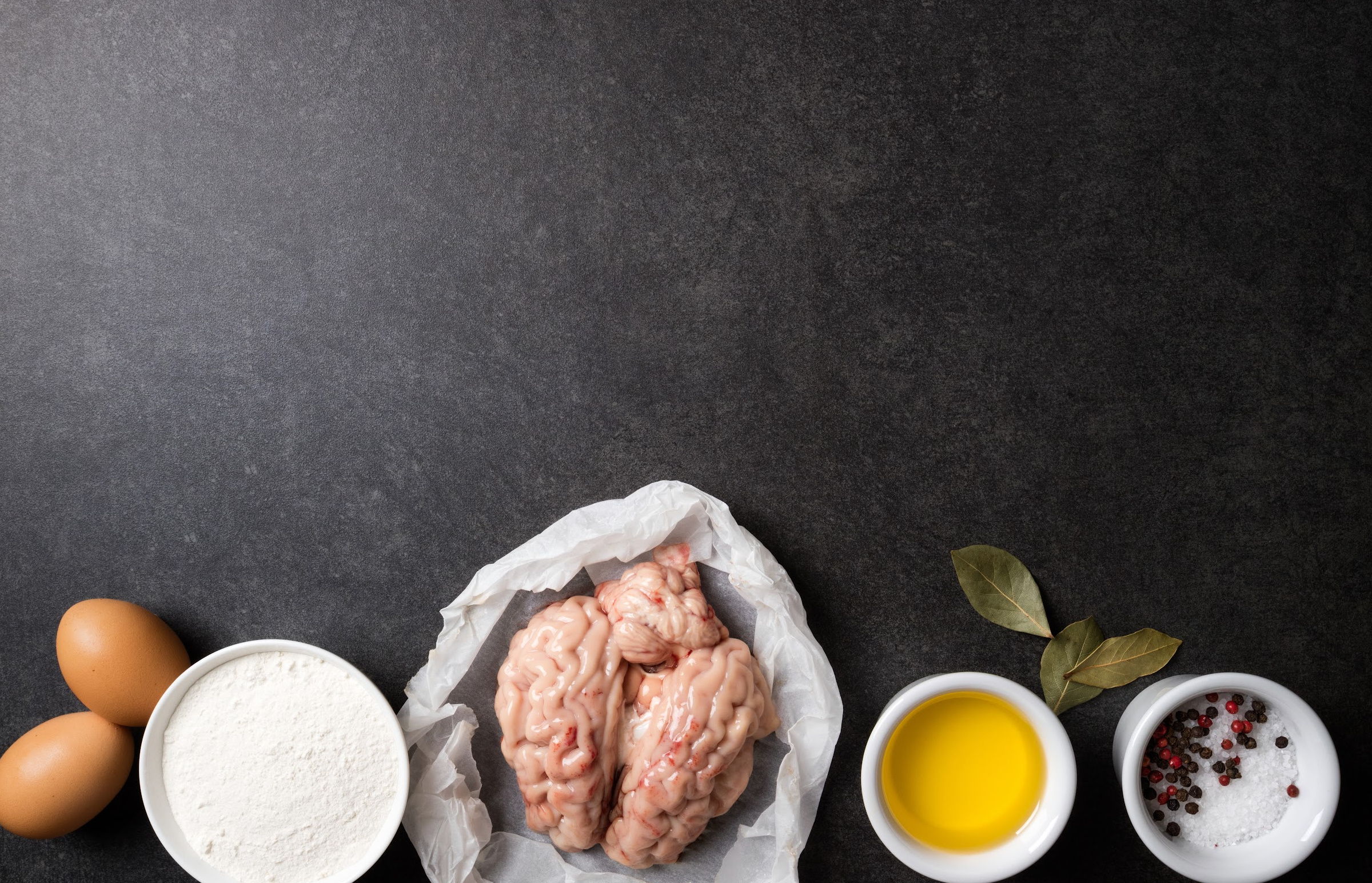


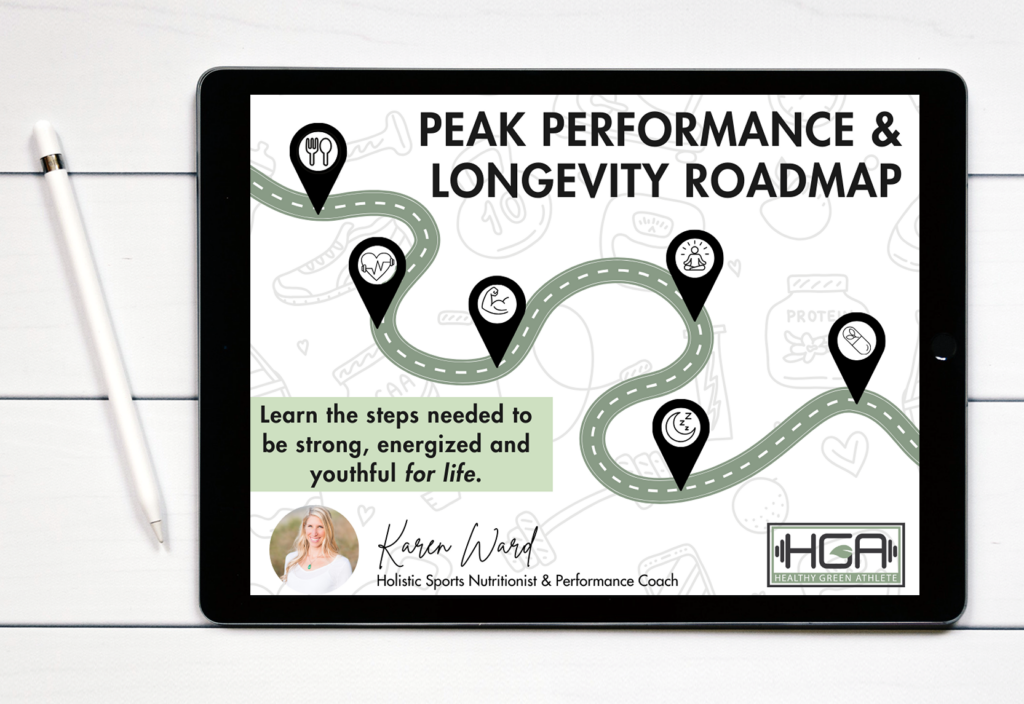
2 Comments
Pingback:
Pingback: